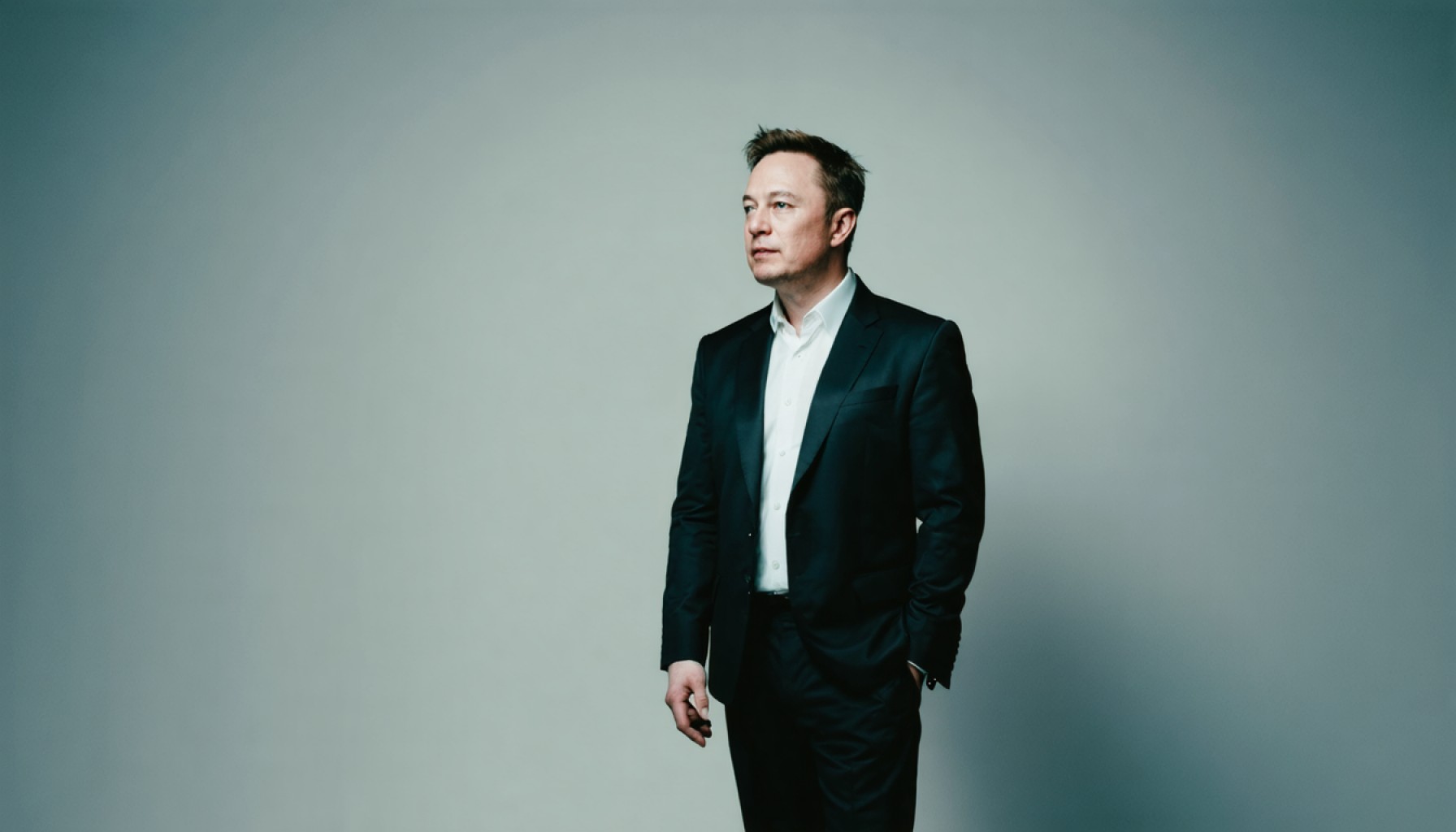- Elon Musk is at the forefront of a significant shift where technology intersects with politics, particularly using artificial intelligence to influence government authority.
- Silicon Valley is experiencing a shift toward right-wing ideology, challenging its reputation as a hub of innovation and liberal ideals.
- The concept of techno-fascism—combining authoritarian control with technological advancement—is becoming a growing concern in U.S. politics.
- There is tension between technologists and populists, raising questions about the potential for cooperation or conflict.
- The unfolding political and technological landscape demands vigilance as the decisions made now could significantly impact future freedoms.
- Awareness and understanding of these changes are crucial for navigating the evolving relationship between technology and governance.
In the shadowy corridors of influence and power, a new narrative unfolds where technology and politics merge in unprecedented ways. Elon Musk, the charismatic and enigmatic billionaire, finds himself at the epicenter of this seismic shift, wielding the tool of artificial intelligence as a force to redefine government authority. His audacious maneuvers ripple through Silicon Valley, where the once-glorified bastion of innovation and liberal ideals now teeters precariously toward a right-wing ideology.
The stakes could not be higher in the United States’ political landscape, where the frenetic dance between populism and technology takes on a new urgency. The vision of techno-fascism—an ideology that blends authoritarian control with technological prowess—looms large. Its roots, nurtured in the dim glow of screens in ventures that prize data over democracy, spread alarmingly into the fabric of society.
As the corridors of power in Washington buzz with the familiar echoes of populism championed by figures such as Donald Trump, questions arise about the potential for coexistence. Can the disruptive drive of technologists align with the fervent cries of populists without sparking an irreparable rift?
The path ahead teems with uncertainty and intrigue. The essence of human agency stands at a crossroads; the choices made today may well determine the freedoms of tomorrow. Keep a vigilant eye on the unfolding drama, as it holds stories that could rewrite the tenets of governance as we know it.
In this new era, awareness is critical. Understanding the rising influence of technology in politics is not just insightful—it’s imperative. Let us remain engaged and informed as we navigate these transformative tides.
Is Elon Musk Leading a New Era of Techno-Politics?
How-To Steps & Life Hacks for Understanding Tech’s Influence on Politics
1. Stay Informed: Regularly read reputable news sources focusing on the intersection of technology and politics, such as The Verge or TechCrunch.
2. Evaluate Sources: Use tools like Media Bias/Fact Check to assess the credibility of the sources you consume.
3. Engage in Public Discourse: Participate in local forums, attend town halls, or engage with politicians who value tech literacy.
4. Follow Key Figures: Keep up with tech leaders who significantly impact politics, like Elon Musk, the actions of their companies, and how these might influence governmental policies.
Real-World Use Cases
– AI in Governance: Artificial Intelligence is already being implemented in public administration for tasks like automating bureaucratic processes and improving public services efficiency.
– Social Media and Elections: The influence of platforms like Twitter and Facebook in election campaigns is well-documented, pushing narratives and shaping voter opinions.
– Tech Influence in Policy Making: Notably, tech companies engage heavily in lobbying to pass legislation favorable to technological advancements, often impacting regulation around privacy, data, and cybersecurity.
Market Forecasts & Industry Trends
– AI Market Growth: The AI industry is projected to grow from $100 billion in 2023 to over $500 billion by 2030, as per studies by Gartner.
– Tech and Politics: As seen in recent years, the importance of technology in politics will only increase, with more governments allotting funds toward cyber defense and tech education.
Reviews & Comparisons
– Tech Companies in Politics: Compared to other tech leaders, Elon Musk’s active participation in political discourse is more pronounced and controversial, especially with his multiple business interests like SpaceX and Tesla.
Controversies & Limitations
– Techno-Fascism Concerns: The term ‘techno-fascism’ reflects fears about the concentration of technological power, potentially stifling democratic debates and elevating authoritarian governance.
– Data Privacy Issues: With the rise of AI, concerns about user data privacy have increased, prompting discussions about necessary regulatory frameworks.
Features, Specs & Pricing
– AI Tools in the Political Sphere: Technologies like machine learning algorithms are used to analyze voter behavior, but concerns arise regarding bias and manipulation.
Security & Sustainability
– Cybersecurity Measures: The escalation of tech’s role in governance necessitates robust cybersecurity strategies to protect sensitive data and prevent breaches.
– Sustainability in Tech: With a shift towards automation, the industry must consider technological impacts on employment and economic inequality.
Pros & Cons Overview
Pros:
– Enhanced efficiency in governance.
– Data-driven decision-making.
– Potential for increased transparency.
Cons:
– Erosion of privacy.
– Potential to exacerbate inequality.
– Risk of technological determinism.
Insights & Predictions
This evolving landscape suggests a dynamic where tech leaders might play pivotal roles in political movements, challenging traditional governance structures. The potential for technological advancements to either benefit or undermine democratic systems is profound.
Actionable Recommendations
– Enhance Tech Literacy: Understanding technology’s impact on politics can empower citizens and build resilience against misinformation.
– Advocate for Responsible Tech: Support regulations that protect privacy and promote ethical AI deployment.
– Promote Civil Tech Engagement: Encourage transparency and public discourse around tech decisions that affect society.
For further insight, consider regularly visiting BBC and Reuters to stay updated on tech and politics’ ever-evolving relationship, ensuring you remain informed and proactive in this digital age.
